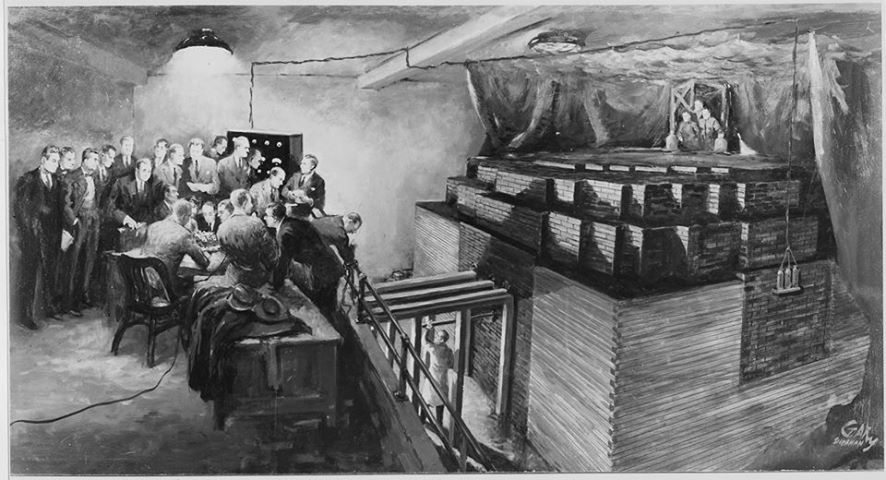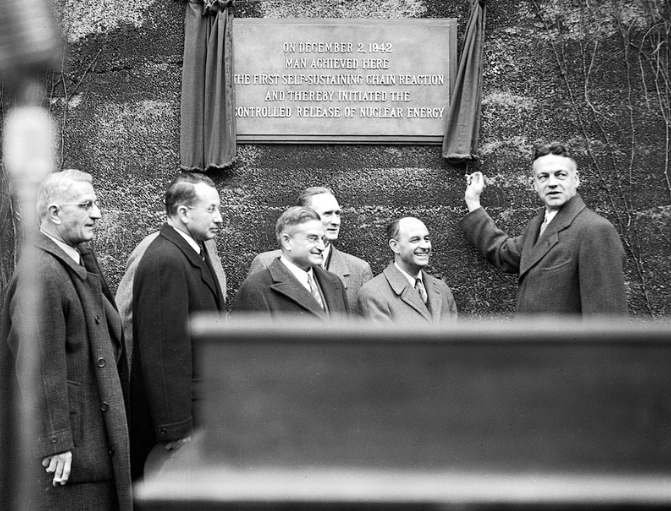On December 2, 1942, the first fission chain reaction was sustained at the Chicago Pile-1 (CP-1) reactor at the University of Chicago. The team was lead by Enrico Fermi as part of the Manhattan Project to create a nuclear weapon for the United States. This was a significant event because the team proved that energy could be created and sustained from the fissioning, or breaking up, of the isotope Uranium-235. This fission chain reaction provided the basis for the technology used for nuclear weapons and nuclear reactors.
What if, on December 3, 1942, Fermi's team had realized how destructive this technology could be and not allowed further research? Of course, their research was owned by the U.S. government so they didn't really have a say. What if the fission chain reaction was discovered 10 years earlier or later, not in the middle of a war? Would we only have nuclear energy and not weapons?
How would you have felt if you woke up on December 3, 1942, after achieving the first fission chain reaction at CP-1? I think I would have been excited, but nervous for things to come.



 RSS Feed
RSS Feed

